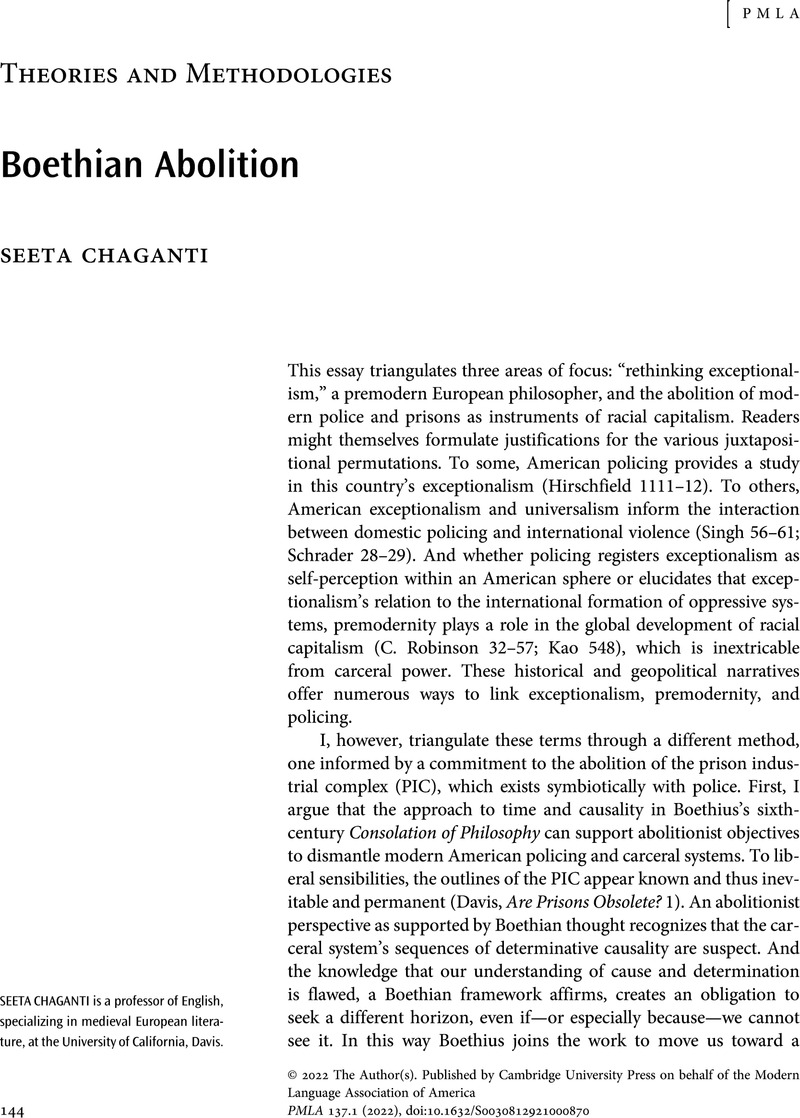Crossref Citations
This article has been cited by the following publications. This list is generated based on data provided by Crossref.
Crocker, Holly A.
and
Harris, Carissa M.
2024.
Theorizing Gender, Patriarchy, and Liberation: Imani Perry’s
Vexy Thing
and Medieval Studies
.
Exemplaria,
Vol. 36,
Issue. 3,
p.
195.


